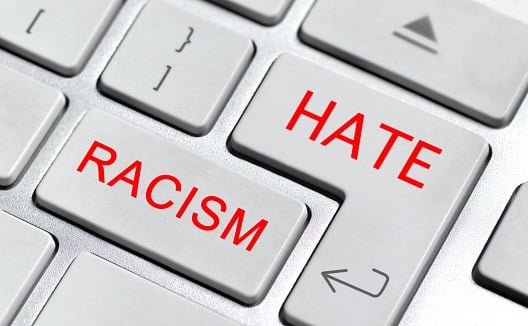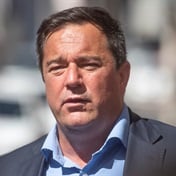
Dangerous, harmful words do not serve our democracy. We should remind one another of the need to build a culture that is welcoming and promotes human rights in line with our inherited constitutional values, writes Chris Jones.
Annually on 24 September, South Africans celebrate Heritage Day to recognise and celebrate their cultural wealth. Culture – in my view – should not only recognise diversity, but should also promote social cohesion.
Culture should be welcoming and enhance the well-being of all people. It should inspire new ways of thinking and acting to deliver equity and social justice to all.
Culture and heritage are not just about the past, we are creating both every day. The culture that I, and I believe, many other South Africans envision and desire, is not built on what we recently heard from politicians regarding illegal foreigners in our country.
To receive Opinions Weekly, sign up for the newsletter here.
The culture that I would like to embrace, is rather one of human rights that does justice to what it means to be human.
According to media reports, the leader of the Patriotic Alliance, Gayton McKenzie, recently said in support of Limpopo Health MEC, Dr Phopi Ramatuba, that "illegal foreigners should not even be in the country because them being here is a crime. They must thank their lucky stars I was not the leader of the country because I would walk into that hospital, I would unplug that gas that they are enjoying from South Africa and I would bring somebody from South Africa and I would connect them to the gas. If they must die they must die".
Treat people according to our constitutional values
I know people cannot just stream into South Africa from neighbouring countries and rely on our infrastructure – especially public healthcare which is already under enormous pressure. But once people are in a country and need, for example, basic healthcare services, you cannot refuse them.
The purpose of this article is not to list the reasons why there are so many immigrants in the country – or why our healthcare services are performing poorly. I would rather like to point out how such people should be treated as a minority group in South Africa according to our (inherited) constitutional values – in order for them to observe, experience, and absorb a sense of our egalitarian culture, as we have tried to establish since 1994.
I would like to reflect on this issue with reference to the well-known Jon Qwelane ruling, dealing with sexual minorities. The same arguments can be made regarding immigrants who, like sexual minorities, are defenceless, unpopular, and exposed to violence, among other things.
Due to limited space, I only briefly refer to the following guidelines from this case to indicate that McKenzie’s words were very close to hate speech. And this is contrary to the kind of culture many of us want to be known for – a culture that wants to share and takes pride in what we have to offer, also to those from other countries who find themselves in difficult situations in South Africa.
According to paragraph one in the Qwelane judgment, "speech is powerful – it has the ability to build, promote and nurture, but it can also denigrate, humiliate and destroy. Hate speech … marginalises and delegitimises individuals based on their membership of a group … It can ignite exclusion, hostility, discrimination and violence against them …"
READ | Ben Winks: In a post-Qwelane world there may be more room for racists to escape legal consequences
Paragraph 69 states that "according to author Thomas Irwin Emerson, there are four particular values that undergird the right to freedom of expression. These … include: (a) the pursuit of truth; (b) its value in facilitating the proper functioning of democracy; (c) the promotion of individual autonomy and self-fulfilment; and (d) the encouragement of tolerance".
According to paragraph 81, hate speech is more than offensive oppression. It amounts to "extreme detestation and vilification which risks provoking discriminatory activities against [a] group. Expression will constitute hate speech when it seeks to violate the rights of another person or group of persons based on group identity …"
Incitement
Not only do McKenzie's words contravene the abovementioned values, but his impugned expression must also be evaluated against paragraph 89, which states that "[v]arious factors have been identified in international law that justify the curtailment of freedom of expression. These include: (i) the prevailing social and political context; (ii) the status of the speaker in relation to the audience; (iii) the existence of a clear intent to incite; (iv) the content and form of the speech; (v) the extent and reach of the speech; and (vi) the real likelihood and imminence of harm".
READ | No Gayton McKenzie, politicians can't pull the plug on foreign nationals' oxygen
If one weighs McKenzie’s words, as an influential political leader in South Africa, against the abovementioned guidelines from the Qwelane ruling, his words are very discriminatory. They speak of dying or killing, which is an extremely hostile position to take, especially in the context of frequent violent attacks against foreigners who are politically and economically defenceless.
These dangerous, harmful words do not serve our democracy and do not uphold the core value ??of freedom of speech. They are also not part of the heritage that we would want to celebrate. We must oppose them at all costs in line with the following thought expressed by Italian philosopher, Antonio Gramsci, who suggests a form of prophetic pragmatism capable of engaging in "a cultural battle to transform the popular mentality".
The need to build a culture
I would rather be part of a culture which motivates and enables people to realise their sense of duty to the common good. A discrimination-free culture that uplifts people and encourages ethical and spiritual growth. These are characteristics of a qualitatively different kind of society to the one sometimes propagated by certain politicians of this world.
Within the context of reconstruction in the Soviet Union, the Archbishop of Smolensk and Kaliningrad wrote in 1990: "[T]he understanding of culture is closely related to the spiritual essence of man and therefore with the ethical condition of existence … Authentic culture must uplift man intellectually and aesthetically, encouraging personal spiritual/ethical growth. Man's spiritualisation signifies his ability to govern himself (that is, control his instincts and passions), to achieve inner integrity, to keep his flesh in submission to its spiritual foundation. If culture does not serve this end, it becomes anticulture which whether in a decent or indecent incarnation, can wield a dangerous destructive power".
On Heritage Day and beyond, we should remind one another of the need to build a culture that is welcoming and promotes human rights in line with our inherited constitutional values. This should be part of the heritage we pass on to future generations of South Africans.
- Dr Chris Jones is Chief researcher in the Department of Systematic Theology and Ecclesiology, and also head of the Unit for Moral Leadership at Stellenbosch University.
*Want to respond to the columnist? Send your letter or article to opinions@news24.comwith your name and town or province. You are welcome to also send a profile picture. We encourage a diversity of voices and views in our readers' submissions and reserve the right not to publish any and all submissions received.
Disclaimer: News24 encourages freedom of speech and the expression of diverse views. The views of columnists published on News24 are therefore their own and do not necessarily represent the views of News24.




 Publications
Publications
 Partners
Partners























